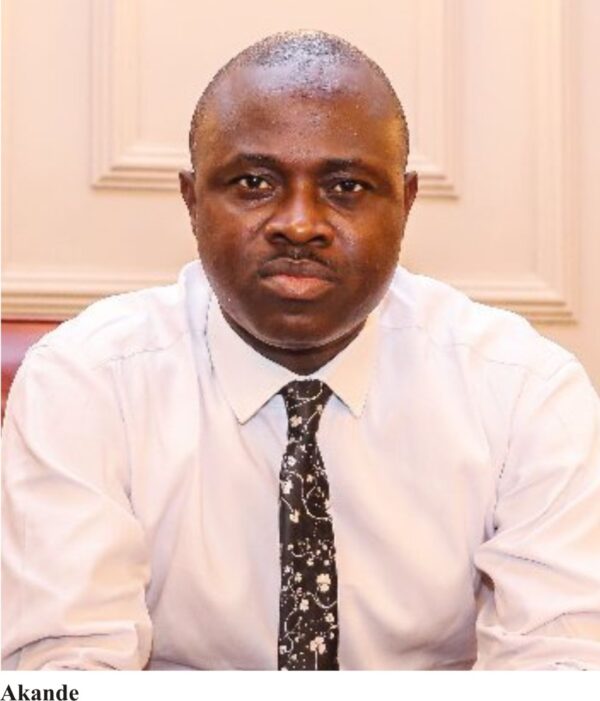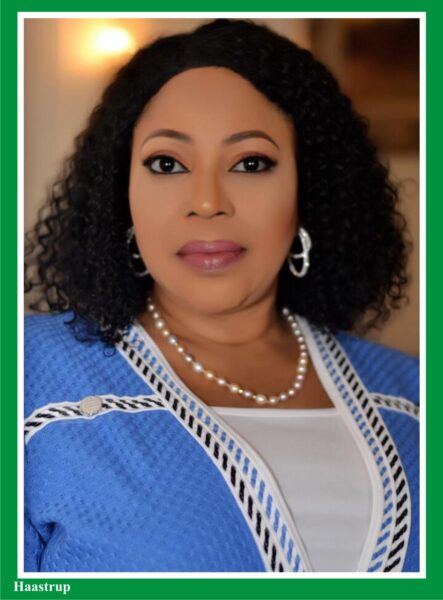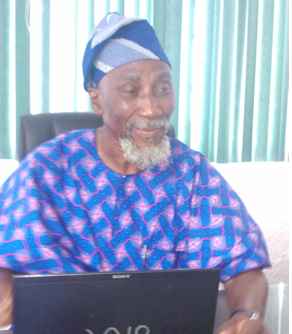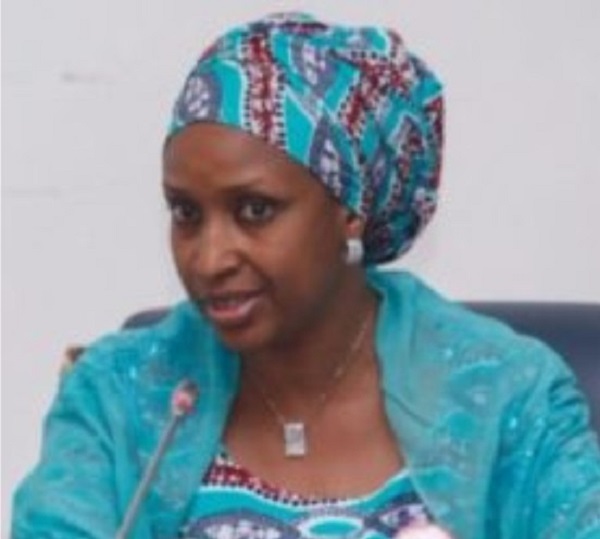I CARE INTERVIEW
African Politicians Don’t Understand The Significance Of Shipping- Kofi Mbiah
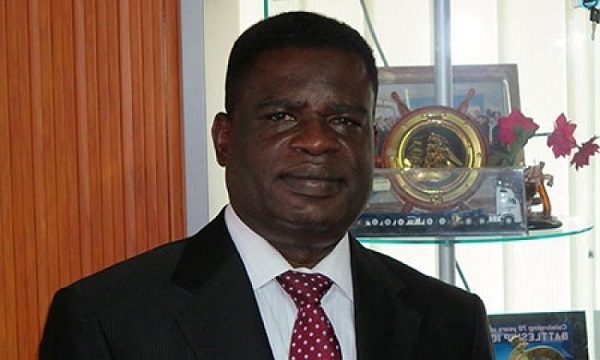
Mr. Kofi Mbiah is a former Chairman of the International Maritime Organization’s (IMO) Legal Committee in London and former Chief Executive Officer of the Ghana Shippers’ Authority. In this interview with MMS Plus he highlights the common challenges facing African countries in shipping and proffers the headway. Excerpts:
From your experience in Nigeria, what do you think we aren’t doing right with regards to the development of maritime in the nation?
I can’t talk about Nigeria and just isolate Nigeria because the problems in the country are unique and general; they are more like African or West African problems. Nigeria is a catalyst that drives a lot of things that take place in Africa; however, we must realize that things are changing everyday in the world. Technologies are evolving and Africa has to keep pace with the evolving times. Today the email has become the modern means of corporate communication and modern transactions. There are also more modern ways of doing business globally but most Africans still use archaic procedures. We need to improve the level of utilization of modern technologies. Our ports are expanding but unfortunately, some of us rely so much on foreign technology and foreign partnerships. Once foreign partnership comes in, there is a need to look at regulation. How do we begin to get our people involved to also have the benefit of what is going on? As we speak, Ghana doesn’t have its own ships, it’s the same in Ghana, Cote’Ivoire, Cameroon, etc, and how we participate in the trade? How do we ensure that we make input especially in areas that require local content to thrive?
America has always kicked against the sharing of cargo because they want Africans to participate in their trade. America has oil (shale oil) and they want to reserve this only to American ships. So, why can’t we do the same here in Africa? When we speak with a common voice we would be able to achieve this. We are looking at the African Integrated Maritime Strategy (AIMS). The African Union is working on this and it should run till 2050; however this shouldn’t be mere talk because the sea is a key element that could transform African economies. The sea is a gift from God and it has the potentials to completely transform the lives of the entire West African countries if only we can harness the resources from the tourism potentials, fishery, oil and gas, wave energy potentials, etc.
There are so many things we could achieve if we optimize the potentials of the seas. We can forget about our lands because the sea alone can fund the West African economies. Fortunately for the sub-region, Ghana, Nigeria, Cameroon, Cote’Ivoire, are all aspiring to improve on the maritime sector. If we could work together we would be able to achieve more because working in isolation wouldn’t help us. If we work together as a sub-region would give us the leverage to be able to counter those foreign nations who are now taking over petroleum. In this regard I think Nigeria has a big role to play; so I wouldn’t say that there is something Nigeria is doing wrong but there is still so much the nation can do.
As the former Chairman of the Union of African Shippers’ Council (UASC), what have you been able to identify as the common problem of shippers in the region?
The common problems are that we have not been able to get our politicians to understand shipping and that is a very big problem. African politicians don’t think about shipping as a veritable business. They don’t understand that the maritime sector has enormous potentials to generate the money they so desire. Our politicians don’t see the business in shipping, they only think politics. If they can understand and appreciate that this is about foreign exchange in dollars and pounds, just as it is about Naira, Cedis, CEFA, etc., then the policies that emanate in the shipping industry would begin to change. At the moment African politicians are yet to appreciate the trends of global shipping. Today, people are doing door-to-door services like a hotel where you get your order delivered to your room. Technology has evolved to such an admirable level that you don’t need to go out to pick items. Countries like Singapore and Malaysia have welcomed and imbibed this new development, but to what extent are we doing that in Africa. We cannot continue to lag behind; we need the political will to push things to make them work.
We are talking about cashless economy in Ghana and in Nigeria. How can we synergize so that between Ghana and Nigeria if people are trading, they can sit in the comfort of their homes. Someone should be able to sit in Ghana, buy goods from Nigeria and get it supplied to the location in Ghana. Nigerians should also be able to buy from Ghana without having to travel. People should only have to travel when it is for pleasure or because they want to see something or someone. This is where the development of technology is heading and that is what African countries should be thinking about.
You said that in Africa we don’t have shipping companies but it wasn’t so in the past. Is it that we didn’t have the right polices or what went wrong?
Yes, we didn’t have the right policies but I would say that we were too slow in seeing the change. Times were changing and it is happening again. The industrial revolution came because of certain conditions but that revolution passed us by. We talk about the use of computer which we have imbibed to some extent but still there is a gap. We don’t have our ships because we sat down without paying attention to what was happening in the globe. Recognition of what was happening is what would tell us that we need to put certain structures in place. Competition came in the past when we had Black Star line in Ghana; we had Nigerian National Shipping Line (NNSL) and others, all of these national lines were there but things were changing, the technology was changing. The types of ships was changing, the ships that were changing was changing from a situation in which the containerization was penetrating the trade. We did not see it because we thought containerization was just something, by-products that wouldn’t happen. However, while we were still trying to understand it, it was done. I always liken it to running an 800 meter race; you start, get to a point and then people look at where the end is and then they begin to double up because they have seen the end. And if they double up, you must be able to double up with them or else they would overtake you.
So that is where we fell off; when containerization was coming into the trade, we were still doing bulk. Containerization brought along with it a level of efficiency because all the ships before that time had their derricks and cranes to lift cargo. You will realize that we have more space on the ship if the ship do not have derricks and therefore put the cranes rather on the shore. These developments led to a greater deal of efficiency to cut down cost as your margins therefore improve.
We couldn’t meet the competition. Consequently, it meant our shipping lines died and the same thing is happening now if we do not imbibe the new technologies that are coming. People are talking about autonomous ships; to what extent is Africa ready to for autonomous ships? People are talking about electronic bills of laden; we cannot continue the old fashion. The businessman wants to deal with somebody who will answer them quickly. If we are still on that slow pace, we cannot catch or meet up and that will also pass us by.
Going forward, we need to integrate our economies and work together. We are talking about optic fiber backbone; we should have it, our internet should be fixed. Today technology is there, but why should someone in Nigeria or Ghana want to send something on the internet, and then it goes through and stops? It is because the rest of the world is using 4G technology but a lot of our people are using 3G technology. How quickly can we work towards achieving this because it is not about getting there? We will get there but if we get there too slowly, by then things may have changed. So we have to ensure we work towards getting there quickly. We should imbibe 4G network very quickly so we are able to do our businesses faster.
If the Shippers Councils all over the world go private, would you support the idea that Shippers’ Councils go private in Africa?
No! I do not. You know shippers organizations have evolved. The British Shippers’ Council was way back in 1950s. We didn’t have any shippers council at that time in Africa. Africa did not know about shipping at that time. Over the years, they had built capacity, strength; their industries had become strong enough. Today when we talk about Salisbury, Tesco, these are giants in America; these can hold their own against shipping lines because in a year they will bring five hundred and fifty (XXXX) spontaneous every month. Here we are too fragmented, it still small business. Until we get to the stage where that strength is there I will not subscribe to that, the shippers should still be the support of government. The shippers need the support of government.
I have also observed that ship owners have taken advantage of the poor infrastructure in Africa, especially the security problems like the Gulf of Guinea, to impose high shipping charges. How was your association been able to address this problem?
I can say quite frankly that we have not been able to address this to a logical conclusion. The fight is still ongoing. The charges are still proliferating. There is a need for us to have a concerted effort because the shipping lines are taking advantage of us and consequently the only way we can do that is to come together. This is because shipping lines move from one port to the other but they are all in West Africa. If they realize that they cannot exploit one country they go to another place, hence, it is very important for us realize that integration is key.
Shipping lines are looking for profit so they seize any opportunity they get to slap a charge; our efficiencies are important of course but we must speak for ourselves. We must ensure that there is a balance even as we protect ourselves and say the charges are too many. We must work towards efficiency so that when the shipping lines come to your port, the ship can easily get to the next, easily leave the port and they will have no basic to charge. The moment you open a small gap it is a slap, then you have a long process to clear that container. “You have goods in my container and I need my container to work” that is the shipping line philosophy. They would tell you that they are not interested in demurrage but they want the container back, but they know that your inefficiency is disturbing the job and they are making more money.
However, if you were to remove your cargo from that container, he would have to look for a place to keep it and have to wait until another ship would come and pick it. By implication, that container wouldn’t fetch him what he would get by the way demurrage from you. That is why I am insisting that our efficiencies are critical when the cargo lands, there is a berth, container is picked, cargo is taken out, container is returned and there is no basis for arbitrary charges. We can’t continue the same way to take two to four weeks to clear cargoes because the containers need to go back. So these tools are important and we have to work on them.
There was a leadership model introduced in Ghana that became so enviable that other countries, especially Nigeria copied. However, your exit seems to have scuttled that model. I’m talking about leadership succession. As the Managing Director of Ghana Shippers Authority, you had a deputy and when you exited the new president appointed someone else leaving out the technocrats. What would you say about this?
I don’t answer political questions. I leave them to the politicians.
You championed the Introduction of maritime seminars for judges. How has this impacted positively in the dispensation of justice in your own country?
In Ghana and Nigeria, this seminar has been successful. It is not about the cases that come or don’t come; it is the awareness. Prior to this, there were many judges especially the new and upcoming ones who knew nothing about maritime law. We talk about the arrest of a ship and they think it is the same thing as the arrest of a criminal. It is a civil action not a criminal action but when you say arrest, all of them think that it is a criminal matter.
Over the period, I can tell you that there had been significant improvement as far as knowledge transfer is concerned. People have gotten to understand the maritime sector better. Sometimes, some of the cases have not come before them but they learn more. It is about the improvement of their knowledge in the field and that has been helpful.
At the international maritime front, I observed that Africa doesn’t have a united front especially at International Maritime Organization (IMO). When Nigeria goes for this, Ghana would attack it; how has that affected us as continent?
I wouldn’t say that Ghana and Nigeria either have collaborated or not. That is between Ghana and Nigeria. In Africa, we have problems with our Francophone neighbours and I will state that as a fact because you know our participation in the international maritime arena in itself is inadequate. Africa’s voice is minimal. Our people don’t come to the meetings. When they come today, they don’t come tomorrow and that is where the rules are made. The rules that eventually trickle down and come to govern the nitty-gritty of what we do in shipping are made at the IMO, yet we don’t take part. The rules are fashioned for us and we have no choice because shipping is international not locally, we just have to conform.
If we practice it, we can have an influence on the things that affect us, when they say this, we say that and then we have a common voice and push things along together. Nigeria and Ghana have collaborated in the past. For instance, when Nigeria wanted to go for the council, Ghana said okay, we won’t go. The collaboration is there but the participation hasn’t been too good. In Africa, someone will come today and tomorrow another person shows up for the next meeting based on the choice of politicians. We don’t build consistency that way and our knowledge base also suffers. I will say that I am fortunate in my own case because I happen to have gone to IMO for a long time and therefore on the floor of IMO I understood the debate and contributed to the debate. The people could see the reason in my debate and they can say the man has been on ground. Why should you come to the meeting and you don’t contribute anything except to sleep.
Copyright MMS Plus.
All rights reserved. This material, and other digital content on this website, may not be reproduced, published, broadcast, rewritten or redistributed in whole or in part without prior express written permission from KINGS COMMUNICATIONS LIMITED.


